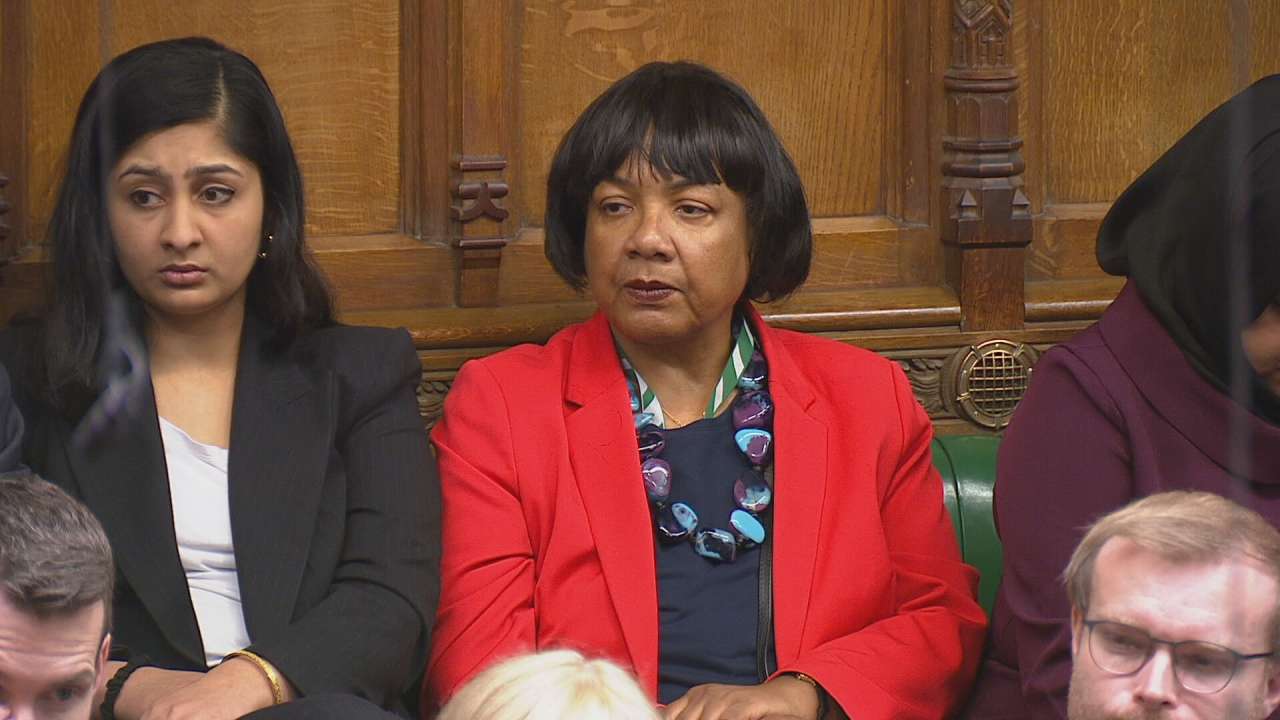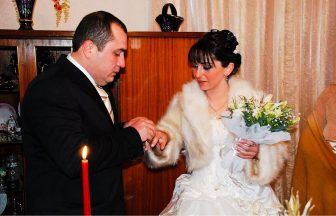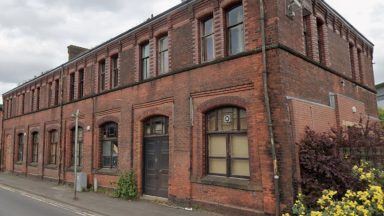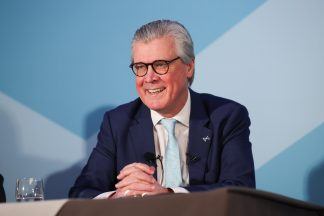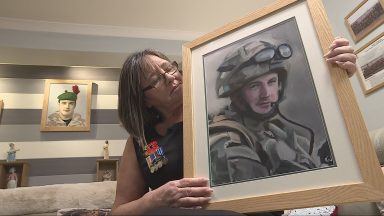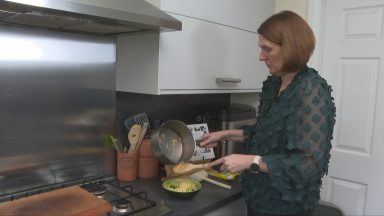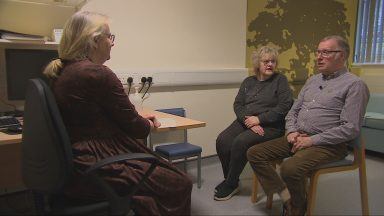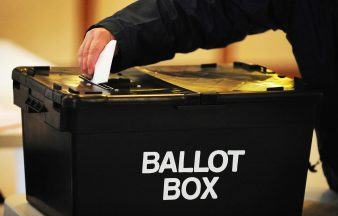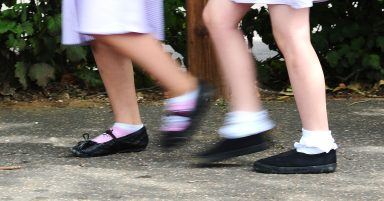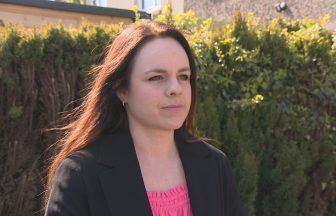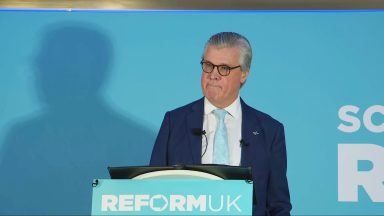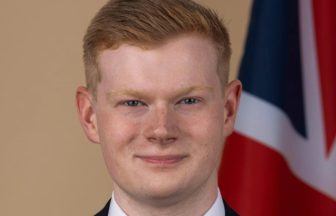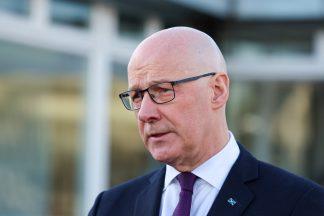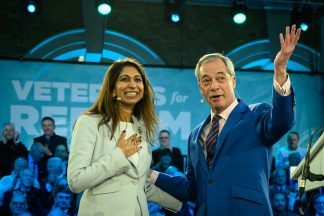Diane Abbott has criticised the Speaker Sir Lindsay Hoyle for not allowing her to ask a question during PMQs, despite the focus on the session being on “racist” comments allegedly made about her by a Tory donor.
The former Labour MP made multiple attempts to ask the prime minister a question during the weekly quizzing of Rishi Sunak in the Commons.
She wrote on X, formerly Twitter: “I don’t know whose interests the Speaker thinks he is serving. But it is not the interests of the Commons or democracy.”
During PMQs Labour leader Sir Keir Starmer called on Mr Sunak to return money given to the party from top donor Frank Hester.
Mr Hester is alleged to have said in 2019 that Ms Abbott, Britain’s longest-serving black MP, made him “want to hate all black women” and that she “should be shot”.
A Labour spokesperson said on Wednesday afternoon that they “think it would have been good for the house to hear from Diane Abbott today”.
Ms Abbott stood up multiple times in the chamber to try and get the Speaker’s attention.
As PMQs was happening, Labour MP Stella Creasy tweeted from the chamber saying “right now Diane Abbott is standing to ask a question in Prime Minister’s Questions. As her safety is debated by others. Something very wrong if her voice isn’t heard today…”
Ms Abbott also confirmed in an X post that she spoke to Sir Keir after PMQs and urged him to let her back in to the party.
She reposted a tweet from activist Owen Jones who said Sir Keir told Ms Abbott “let me know if there’s anything I can do”, and that she responded by telling him “you could restore the whip”.
Ms Abbott had the Labour whip removed last year after she wrote a letter about racism in the Observer, in which she played down the idea that Jewish people can experience racism.
How does the Speaker choose people to ask questions?
The leader of the opposition is given six questions during PMQs, and the leader of the second biggest party is given two questions – the second largest party is currently the SNP.
The other MPs who submit questions to the prime minister are chosen at random each week, and 15 appear on the Order Paper.
When he is calling on MPs to ask questions, the Speaker has to ensure he alternates between a government MP and opposition MPs.
If two government MPs appear in a row on the list, the Speaker can call an opposition MP to fill the gap, and vice versa.
Of the 15 MPs on the list today, 11 were opposition MPs.
The session also ran out of time reaching its 30-minute limit, meaning some MPs on the list didn’t get called on to speak.
However the Speaker is able to override the rules, and could’ve let the session run over to allow Ms Abbott to speak.
A spokeswoman for Sir Lindsay said there was “not enough time” to call all MPs to ask a question, including Ms Abbott.
“During Prime Minister’s Questions, the Speaker must select MPs from either side of the House on an alternating basis for fairness”, she said.
“This takes place within a limited time frame, with the Chair prioritising Members who are already listed on the Order Paper.
“This week – as is often the case – there was not enough time to call all Members who wanted to ask a question.”
The Speaker sparked chaos in the Commons last month when he defied parliamentary convention over a Gaza ceasefire vote.
Many MPs called for him to resign after he selected Labour’s bid to amend an SNP motion on the Israel-Hamas war.
What happened during PMQs?
The Labour leader began Prime Minister’s Questions by asking the prime minister if he was “proud to be bankrolled by someone using racist and misogynist language?”.
Mr Sunak replied saying “the alleged comments were wrong, they are racist, he has rightly apologised for them and that should be accepted”.
The Tory donor said he is “deeply sorry” for being “rude” to Ms Abbott, but has not apologised for being “racist”.
The prime minister and his ministers had previously refused to label the comments as “racist”, but changed their position on Tuesday evening.
Labour MP Marsha de Cordova asked the prime minister if he would return a £15,000 from Hester to cover the cost of a helicopter flights, but Mr Sunak replied “no”, instead insisting he is “pleased that the gentleman is supporting a party that represents one of the most diverse governments in this country’s history.”
The SNP’s Stephen Flynn accused Mr Sunak of “putting money before morals”, and citing Mr Hester’s apology for being “rude” said: “he wasn’t rude – he was racist, he was odious, and he was downright bloody dangerous.”
Police are understood to have been contacted in relation to the the Guardian report about comments allegedly made by Mr Hester.
A Metropolitan Police spokesperson said that officers from the Parliamentary Liaison and Investigation Team were in contact with Ms Abbott and officers from West Yorkshire Police regarding the report.
“To hear someone talking like this is worrying”, Ms Abbott said in a statement on Tuesday morning.
“I live in Hackney and do not drive so I find myself, at week-ends, popping on a bus or even walking places more than most MPs. I am a single woman and that makes me vulnerable anyway”
Mr Hester is the chief executive of The Phoenix Partnership (TPP), a healthcare technology firm which has been awarded a number of government contracts.
Follow STV News on WhatsApp
Scan the QR code on your mobile device for all the latest news from around the country


